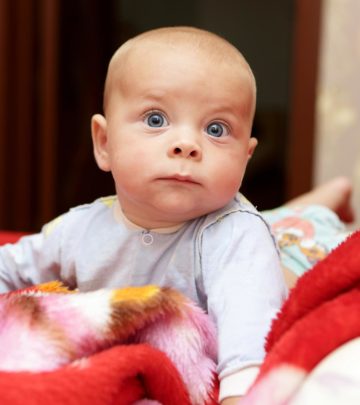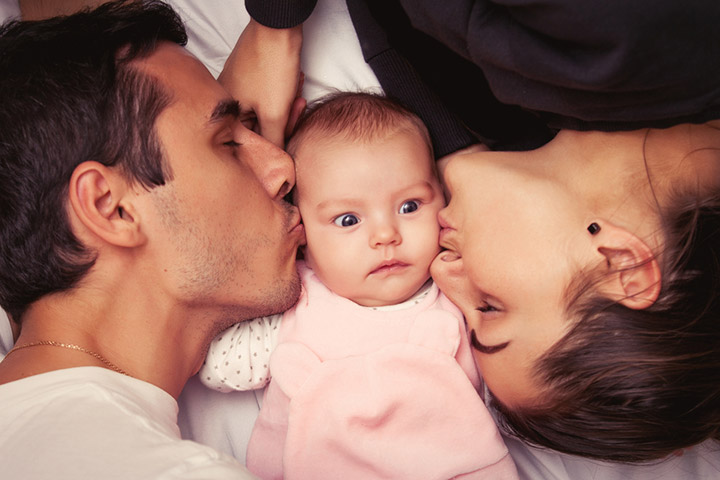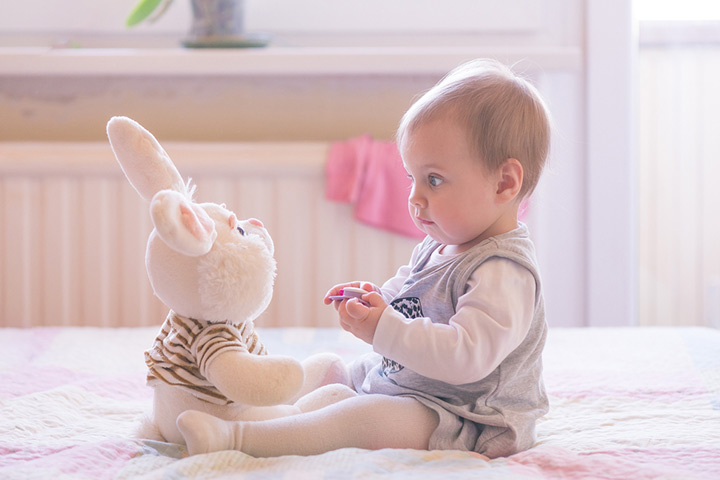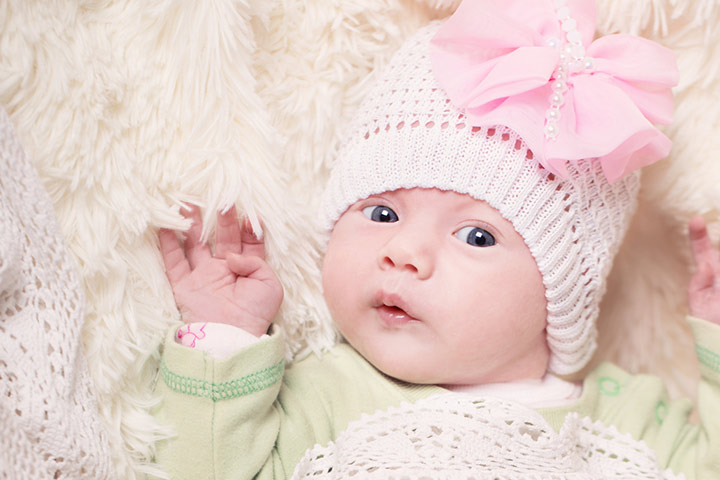
Image: Shutterstock
Have you ever caught yourself in a staring contest with an infant? Those little eyes can be piercing and make you feel like they are trying to convey something. If you’ve ever had a baby stare at you for longer, you might have wondered why, “Is it because they find me attractive?” “Do I have something stuck on my teeth?” or “Is it my big blingy earrings they can’t get enough of?” Well, there is a perfectly logical explanation behind this newborn behavior.
So, if you’ve ever flattered yourselves thinking that a baby might have found you attractive, don’t disregard it completely. There could be some truth to that. But we will get to that later.
Image: Shutterstock
Even before infants do the baby talk, they communicate through other means such as a smile or an “infant gaze”. Research shows that infant gaze begins at a very young age, right from birth, in fact. And facial expressions and features contain a sea of knowledge that will help in their development (1). You might have observed babies sometimes fixating on faces. In a study, newborn babies with a median age of 9 minutes were shown an image of a proper face pattern as well as a scrambled face pattern or a blank. To test their responsiveness, researches moved the stimulus to their line of sight. It was found that babies followed the images of proper faces longer when compared to the scrambled ones.
Another study shows how neonates distinguish between the face of their mother and a stranger (2). Newborns’ ability to recognize faces also aid in better protecting themselves in a dangerous situation. Three experiments were conducted where control over the olfactory information was used. It was found that babies were able to differentiate their mothers from strangers just on the basis of facial clues which relates to featural attributes and face rather than attention-recruiting behavior from the mother’s side.
Image: Shutterstock
Babies and toddlers take environmental cues by relying on their mother’s facial expressions (3). A behavioral study shows the effects on maternal modeling on fear and avoidance behavior in toddlers. The study involved 30 toddlers to study their reaction towards fear-relevant toys. A rubber snake and a spider were shown to toddlers with positive and negative facial expressions from their mothers. Both the toys were shown again after a 1-minute and 10-minute delay with a neutral expression from the mother’s side. It was observed that toddlers showed a greater degree of fear and avoidance to toys which followed a negative reaction from their mothers. Another interesting observation was that the modeled avoidance was greater in girls when compared to boys.
Image: Shutterstock
But what about when babies stare at a stranger’s face? It could be because they find their faces attractive. Yes, though we like to believe that beauty lies in the eyes of the beholder, babies as young as 2 months old have a preconceived notion of what’s attractive and what’s not (4). Several studies were conducted to test this theory and almost all had similar findings. In one study, newborn babies with a mean age of 2 days and 9 hours were included. Infants were shown pictures of women with attractive and less attractive faces (as judged by adults). It was found that the babies stare longer at attractive faces when compared to the less attractive ones. The “attractiveness effect” was tested by 2 experimental conditions, to find whether the results were based on attention to external or internal facial features. Two images with attractive and less attractive faces were shown. Each pair of images had either different external and identical internal features or different internal and identical external features. The evidence clearly stated that newborn infants liked to look longer at attractive faces when compared to less attractive ones.
However, if a baby is non-responsive to gazes, it could be an indication of intellectual disability. So, if you find that your baby is not responding well and the long gaze is never accompanied by a smile or a positive reaction, it is best to consult with your baby’s pediatrician to learn more about it.















